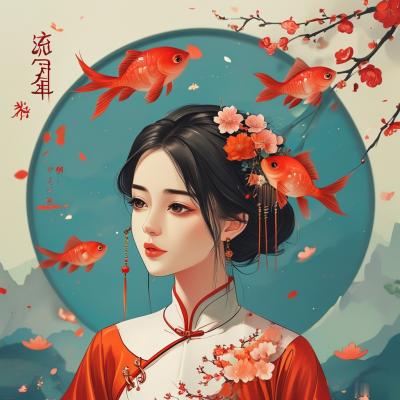农历黄道吉日开火做饭
农历黄道吉日开火做饭 在中国传统文化中,农历黄道吉日被视为吉祥的日子,人们常常选择这一天进行重要的活动,比如开业、结婚、搬家等。...
扫一扫用手机浏览
Is Tomorrow an Auspicious Day?
Many people believe that certain days are more auspicious than others. They consult various methods, such as astrology, numerology, and feng shui, to determine whether tomorrow will be a lucky day. While these beliefs may vary across cultures, the desire for good fortune is universal. In this article, we will explore the concept of auspiciousness and its significance in different societies.
The Cultural Significance of Auspicious Days
Auspicious days hold great cultural significance in many societies. In Chinese culture, for example, the Lunar New Year is celebrated with various customs and traditions to ensure a prosperous year ahead. People clean their homes to sweep away bad luck and make room for good fortune. They also refrain from certain activities, such as washing hair or using sharp objects, to avoid cutting off good luck. The choice of an auspicious day for important events, such as weddings or business deals, is believed to bring success and happiness.
In Indian culture, the selection of auspicious days is also crucial. Hindu weddings, for instance, are often scheduled on dates determined by astrologers. These astrologers analyze the positions of celestial bodies to find the most favorable time for the union. Similarly, important festivals and religious ceremonies are observed on specific dates believed to be auspicious. The belief in auspiciousness is deeply ingrained in the fabric of Indian society.

The Role of Astrology
Astrology plays a significant role in determining auspicious days in many cultures. It is the study of the movements and positions of celestial bodies and their influence on human affairs. Astrologers analyze these movements to predict the future and identify favorable days for various activities.

In Western astrology, each zodiac sign is associated with different characteristics and ruling planets. These planetary influences are believed to affect different aspects of life, including luck and fortune. Individuals consult their horoscopes to determine the auspiciousness of a particular day based on their zodiac sign.
Similarly, in Chinese astrology, the lunar calendar and zodiac signs are used to determine auspicious days. Each year is associated with a specific animal sign, and certain animals are considered more fortunate than others. For example, the Year of the Dragon is believed to bring good luck and success. People born in the Year of the Dragon are often considered to be blessed with auspiciousness.
Superstitions and Rituals
Superstitions and rituals also play a role in determining auspiciousness. These beliefs vary widely across cultures and can range from simple gestures to elaborate ceremonies.
In Japan, for instance, the first visit to a shrine in the New Year, known as Hatsumode, is believed to set the tone for the year ahead. People flock to shrines to pray for good luck and fortune. Similarly, in Thailand, the annual water festival, Songkran, is celebrated by splashing water on each other as a symbol of cleansing and renewal. This act is believed to wash away bad luck and bring good fortune for the coming year.
Across the globe, people engage in various rituals and practices to attract good luck. These can include wearing specific colors, carrying lucky charms, or performing certain actions at specific times. While these practices may differ, they all stem from the desire for auspiciousness and a belief in the power of positive energy.
Conclusion
Whether tomorrow is an auspicious day or not is a question that is deeply rooted in cultural beliefs and practices. From consulting astrology to following superstitions and rituals, people around the world seek ways to attract good fortune. While the concept of auspiciousness may vary across cultures, the underlying desire for a prosperous and fortunate future is a universal human longing.
So, is tomorrow an auspicious day? That is for each individual to decide based on their beliefs and customs. Regardless of the answer, the hope for good luck and happiness will always remain an integral part of the human experience.